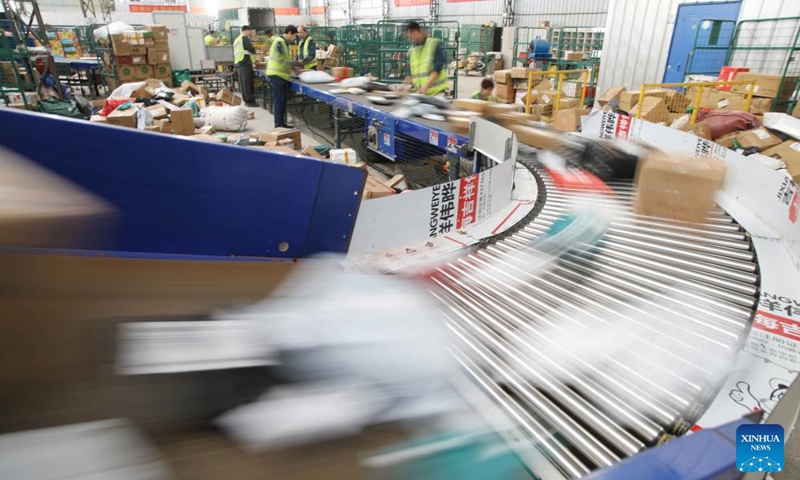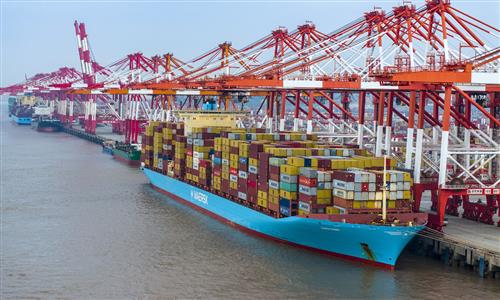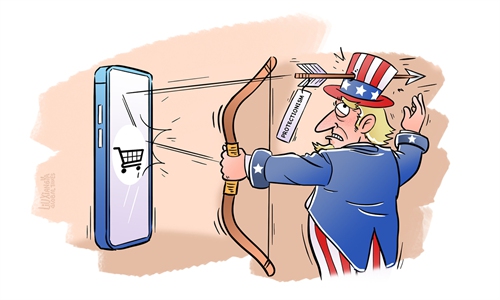
Staff members sort packages at a logistic center of Daoxian branch of China Post in Daoxian County, central China's Hunan Province, Nov. 11, 2024. Manufacturers, e-commerce platforms and logistics companies across the country are busy coping with consumer's demand during China's annual "Double 11" shopping festival. (Photo:Xinhua)
Cross-border e-commerce is an effective force in international trade, and so is cross-border e-commerce in China, China International Trade Representative and Vice Minister of Commerce Wang Shouwen said on Friday at a press conference introducing measures to support foreign trade.
"Why has cross-border e-commerce so far been able to achieve relatively rapid development? Mainly because cross-border e-commerce has its unique advantages compared with traditional trade. First, it can meet the individual needs of customers. Second, fast delivery. Third, it saves costs," said Wang.
Wang said on Friday that the next step is to vigorously develop cross-border e-commerce in order to fuel industrial chains. "Enterprises are encouraged to cooperate in local characteristic industrial clusters, including 165 cross-border e-commerce comprehensive pilot zones across the country, to help more foreign trade enterprises, especially small and medium-sized enterprises, contact foreign buyers with online cross-border e-commerce platforms, in order to get orders, and participate in international trade."
China's Ministry of Commerce (MOFCOM) on Thursday released a broader set of initiatives to support the stable growth of foreign trade in a bid to consolidate and strengthen the momentum of economic growth.
Boosting e-commerce development was among the measures, with continued promotion of the construction of overseas smart logistics platforms and cross-border e-commerce service platforms. The MOFCOM measures will provide enterprises with overseas legal and tax resources and other services.
In the first three quarters, China's cross-border e-commerce imports and exports increased by 11.5 percent, accounting for nearly 6 percent of China's foreign trade, according to statistics from the General Administration of Customs.
"At present, China has signed 23 free trade agreements (FTAs). In the recently signed bilateral FTAs, or the past FTAs that are being upgraded, cross-border e-commerce has been included as a new clause, promoting the development of cross-border e-commerce between China and the relevant countries," said Wang.
More targeted and practical measures were released on Friday, which further detailed MOFCOM's nine broad initiatives supporting foreign trade released on Thursday, Zhu Qiucheng, CEO of Ningbo New Oriental Electric Industrial Development, told the Global Times.
"It explicitly said that enterprises are encouraged to explore diversified markets, especially new markets that have participated in the Belt and Road Initiative," said Zhu.
Zhu noted that at present, the external environment is complex and changeable, and there is pressure on the stable growth of China's foreign trade.
"In this context, we must continue to accelerate the cultivation of new momentum of foreign trade, and continue to deepen the reform structure of the foreign trade system and new trade formats," said Zhu.



